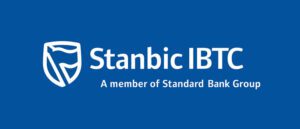
Insecurity, others continue to exert upward pressure on food inflation — Analysts
Analysts at FBNQuest Research have said supply side constraints, a combination of insecurity and conflict and distribution challenges continue to exert upward pressure on food inflation.
These they said on Thursday undermined the Federal Government’s investment into the agriculture sector, stressing that limited availability for food importation has also supported rising food prices.
The latest inflation report released by the National Bureau of Statistics (NBS), shows the sixth consecutive y/y decline in headline inflation to 16.63per cent in September from 17.01 per cent in August.
They explained that, “We attribute this decline mainly to positive base effects and note that the headline rate was up by 12basis points m/m last month – a clear indication that even though there appears to be some disinflation, consumers’ pockets remain stretched.”
Food price inflation dipped again last month to 19.57per cent, from 20.30per cent in August. Food accounts for 50.7per cent of the basket and has been the primary driver of the headline rate. On a m/m basis, the food sub-index recorded an increase of 19basis points to 1.26per cent.
In the selected food price watch report for September, a separate report by the NBS, we see that all 43 food items surveyed recorded y/y price increases.
According to the Premium Motor Spirit (PMS), price watch, the average price paid by consumers for PMS increased by 2.4 per cent y/y but decreased m/m by -0.04per cent to N164.85 per litre in September ’21 from N164.91 in August.
The price of PMS has been relatively stable because pump prices are regulated and heavily subsidised by the government.
At the 27th National Economic Summit on Monday, the World Bank’s country director for Nigeria stated that Nigeria is on track to spend N2.9trillion on PMS subsidy this year.
“We understand that the FGN has made provision for petrol subsidy only through H1 ’22 and ‘is looking at’ complete deregulation of the sector in H2,” they explained.
The transportation segment, which accounts for 6.5per cent of the basket, again posted a price increase of 15.0% y/y and 1.1per cent m/m last month, unchanged from the rate of increase recorded in August.
The NBS transport fare watch shows that the increase in average fare paid by commuters for bus journeys within cities slowed to 1.1per cent m/m and 40.6per cent y/y in September, compared with 3.4per cent m/m and 50per cent y/y in the preceding month. Kebbi, Imo and Jigawa recorded the highest y/y increases.
The NBS report on Liquefied Petroleum Gas (LPG), prices reveals that the average cost of refilling a 12.5kg cylinder increased by 36.6per cent m/m and by 50per cent y/y to an average of N6,165 in September ’21, from N4,514.8 in August.
The persistent increase in LPG is attributed to supply shortages. According to the Nigeria LNG Limited (NLNG), its current maximum cooking gas production can only meet about 40per cent of the domestic market demand. A significant part of the remaining 60per cent is being met by imports.
In its development update for Nigeria, the World Bank expects inflationary pressures to persist for the rest of the year.
The Bank noted that even if domestic food production improves, and supply and distribution constraints are eased, a combination of fx shortage, border closures, expansionary monetary policy and the monetary funding of the fiscal deficit will continue to generate inflationary pressures.



